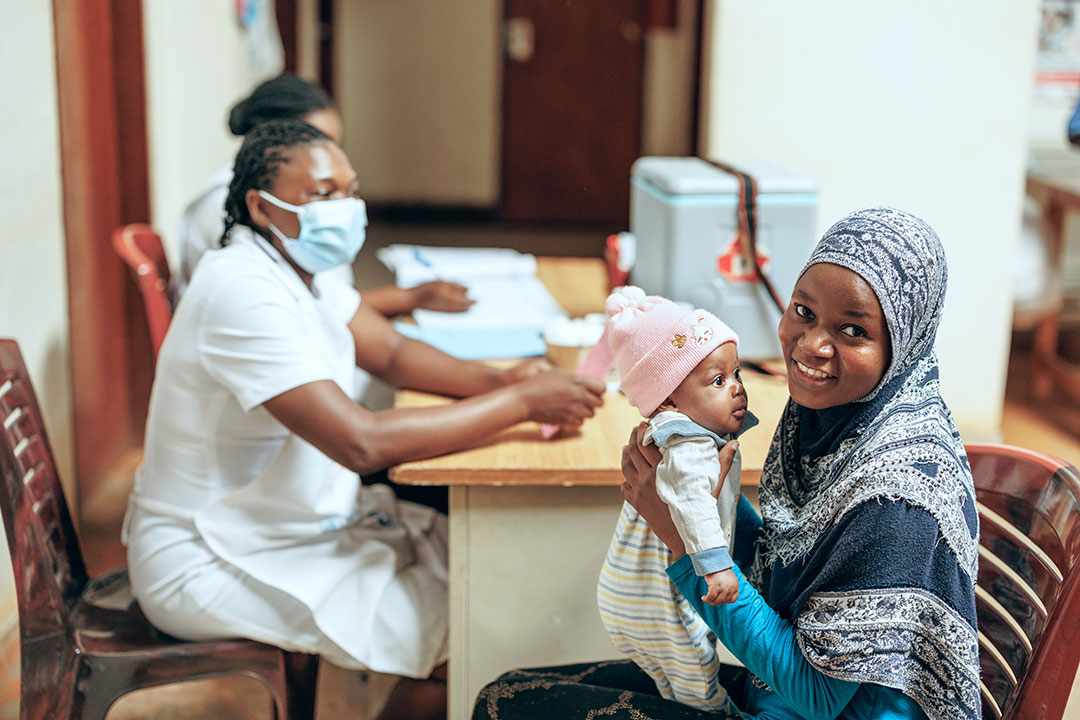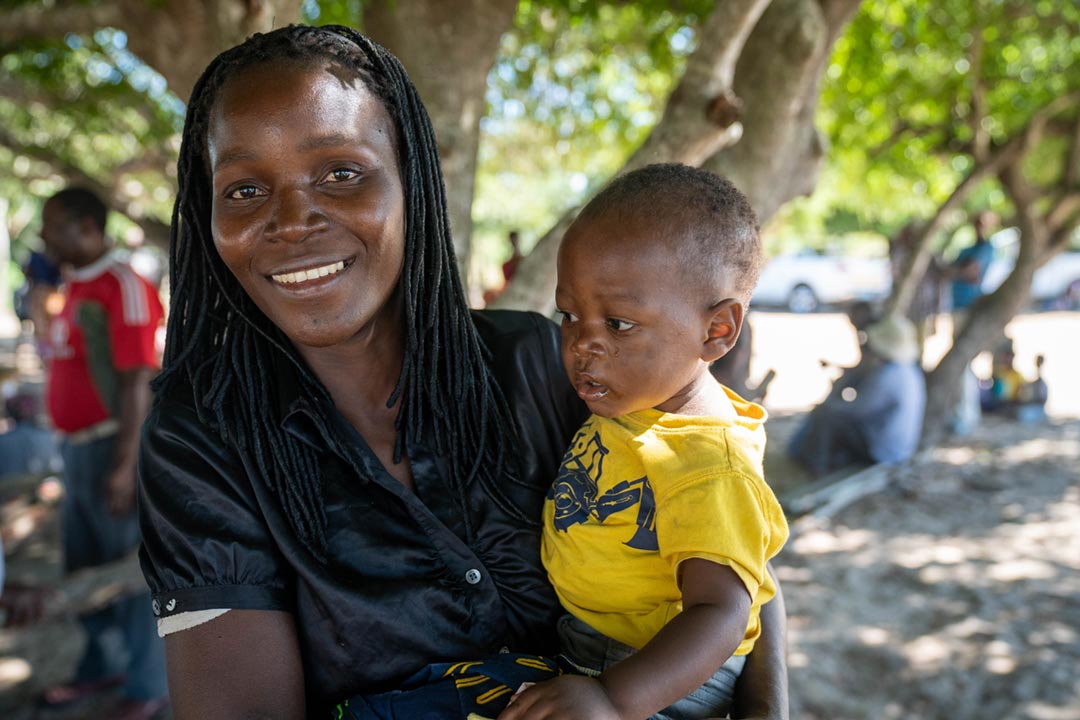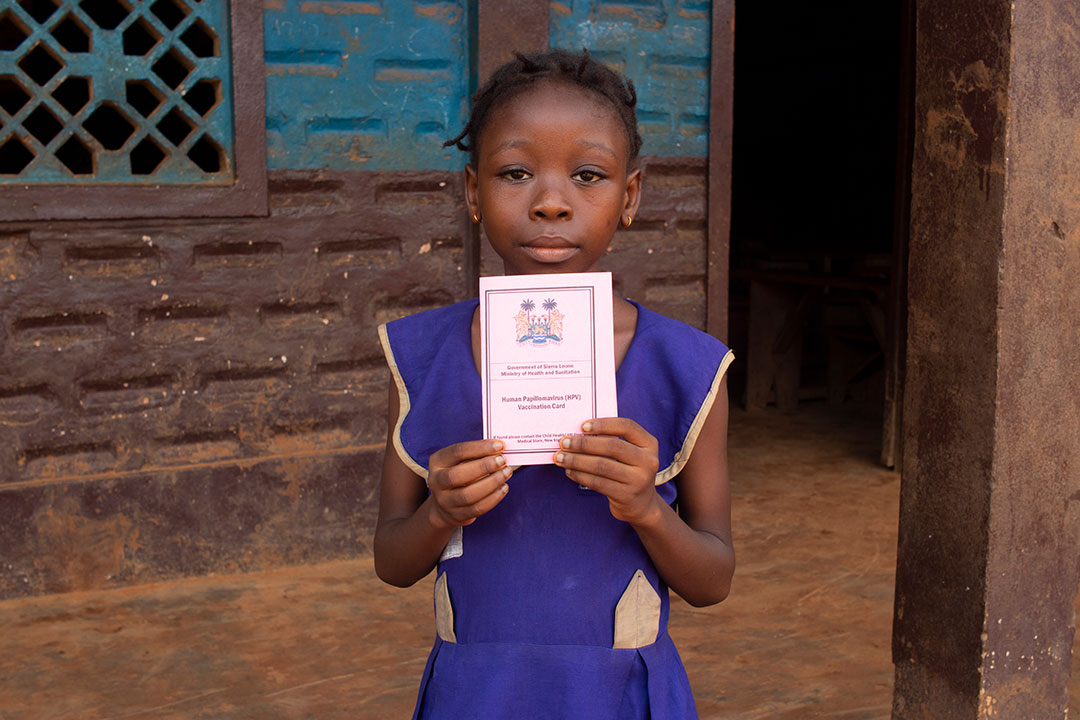One year of the Big Catch-Up: what progress has been made?
On 24 April 2024, on a warm Wednesday morning in Antananarivo, Madagascar became one of the latest Gavi countries to formally commence the roll-out of the ‘Big Catch-Up’. How did we get here?
- 1 May 2024
- 4 min read
- by Collins Mwai

Last week’s country launch in the island nation follows an initiative launched during World Immunization Week 2023, as Gavi and other global health partners came together in an attempt to reverse the decline in childhood vaccination recorded during the COVID-19 pandemic, due to overburdened health services, closed clinics, as well as disrupted imports and exports of vials, syringes and other medical supplies.
This much-needed initiative aims to close immunisation gaps, restore global immunisation levels and strengthen immunisation systems to ensure that catch-up activities become an integral part of immunisation programmes worldwide.
One year on, the Big Catch-Up has garnered significant momentum, with a clear focus on reaching the most vulnerable populations and ensuring that essential vaccines are accessible to all.
In December 2023, the Gavi Board approved a US$ 290 million envelope to accelerate the implementation of the Big Catch-Up initiative. Since the Board’s approval, the Gavi Secretariat has rapidly shifted into implementation mode, leveraging lessons learned from the COVAX experience to establish close collaboration with Alliance partners and effective cross-functional ways of working.
For instance, the Big Catch-Up’s review process is designed to balance speed, equity, and risk management, providing a rapid path to support all applicants, while ensuring sufficient scrutiny of high-volume requests.
Progress in-country
So far, 19 countries have requested support, of which 16 have been approved in part or in full. The first shipment of 340,200 doses arrived in Guinea on 16 March 2024 – just over three months after the Board’s approval.
Have you read?
Other countries that have since received doses and commenced implementation include Afghanistan, the Democratic Republic of the Congo, Guinea, Mozambique, Nepal, Syrian Arab Republic, Somalia, Tanzania and Madagascar.
Read below on three countries that have recently launched their Big Catch-Up campaigns: Syria, Madagascar and Somalia.
Challenges ahead
While this progress is significant, there are some considerable programmatic and financial risks associated with the initiative. It will be paramount to reach large numbers of missed children, apply integrated approaches to advance the broader zero-dose agenda and overcome limitations in data collection and health information systems.
To help address these concerns, the Alliance partners have been engaged to provide technical assistance, develop guidance materials and implement a comprehensive monitoring, evaluation and learning strategy.
On the financial front, the Alliance team is also involved in carefully managing vaccine supply and expiry risks, while also working to limit the potential impact on sustainable immunisation financing.
Gavi and partners are eager to move as quickly as possible to meet the high demand for Big Catch-Up support, enabling countries to launch their programmes, protect missed children and help curb the recent wave of outbreaks.
Syrian Arab Republic has launched a Big Catch-Up vaccination campaign with an aim to reach 360,000 children who have fallen through the cracks in immunisation.
Since the eve of World Immunization Week on 21 April, nearly 15,000 health workers and vaccinators have been deployed to more than 1,000 sites to screen children’s vaccination status and immunise those who are unvaccinated.
Supported on the ground by UNICEF and WHO, the drive has been funded by a specific stream of Gavi support as part of the global Big Catch-Up campaign, seeking to help countries recover backsliding in immunisation since the pandemic.
Somalia government officials and health stakeholders are keen on the Big Catch-Up as a driver to bridge the immunity gaps.
The country applied and received approval for measles vaccine, inactivated poliovirus vaccine (IPV) and diphtheria, tetanus and pertussis-containing vaccine to address some of the country’s widest gaps. Measles and IPV vaccines have since been delivered.
With Somalia classified as a conflict and fragile country experiencing multiple hurdles including a measles outbreak, recurrent drought, floods and persistent insecurity, the Big Catch-Up is a much-needed intervention to ensure immunisation gains made in previous years are not lost.
Madagascar launched the Big Catch-Up campaign, a drive to bolster immunisation efforts to reach every child with life-saving vaccines.
With support from the Global Polio Eradication Initiative (GPEI), the campaign aims to reach over 1 million under-vaccinated children in 2024.
A high-level delegation of the GPEI is in Madagascar to support the country in strengthening routine immunisation while combatting a polio outbreak in the country.







